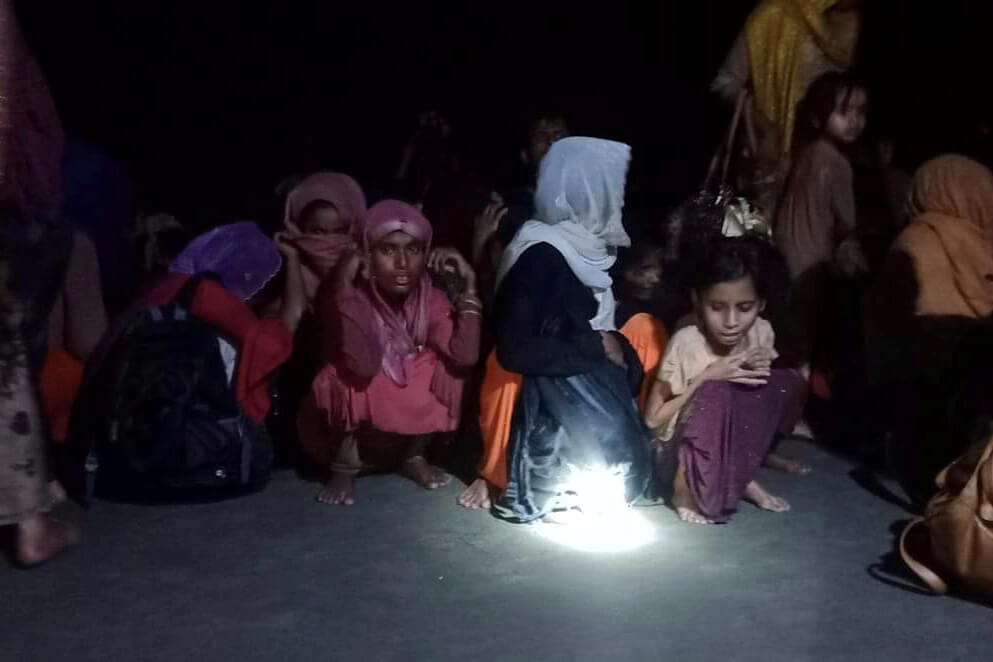With Myanmar’s first reporting deadline to the International Court of Justice already looming, the UN special rapporteur on human rights has warned that Myanmar’s military may once again be committing crimes against humanity.
Myanmar already faces charges of genocide over a military crackdown, which saw more than 700,000 Rohingya Muslims forced to flee to Bangladesh in 2017.
Today, over 850,000 Rohingya refugees are living stateless, in highly congested conditions in 34 refugee camps around Cox’s Bazar, a southeastern coast town of Bangladesh often described as the world’s largest refugee settlement.
Furthermore, the UN reports that around 128,000 Rohingya are being “effectively detained” in government camps in the Rakhine state of Myanmar.
The Rohingya people are regarded as one of the most persecuted populations in the world and their problems are only being compounded by the coronavirus pandemic. Their situation can now rather tragically be summed up by an old British idiom; they have a choice between the devil and the deep blue sea.
The fact of the matter is, the migrant camps housing the Rohingya are drastically ill-equipped to fight the coronavirus.
Dr. Muhaiminur, a medical doctor working for the International Rescue Committee said:
“They live in very congested camp conditions, also their hygiene and sanitation facilities are not adequate… It is really difficult for them to practice social distancing.”
Research conducted by the John Hopkins Centre for Humanitarian Research – albeit yet to be peer reviewed – suggests that between 424,000 and 591,000 Rohingya’s living in these camps could become infected. Their research also found that in almost all their simulations, the “hospitalisation needs, in terms of beds alone, significantly exceeded capacities”.
In response, though not making matters any better, the government of Bangladesh has locked down these camps while continuing an internet and mobile phone blackout.
Sadly, the alternatives to these camps do not provide the Rohingya with hopes of salvation. On April 16 2020, we heard the dreadful news that over 60 Rohingya had died at sea after more than 450 had been denied entry to Malaysia over COVID-19 concerns.
The Free Rohingya Coalition, a global network of Rohingya survivors and international activists, has expressed its deep concerns over numerous reports of Asian states refusing to allow Rohingya boats to disembark on their shores.
There are currently 500 Rohingya in boats being denied safe entry into Bangladesh, and there are reports of a similar situation developing off the coast of Thailand.
We are even hearing of situations in which Rohingyas are being placed in boats before being forcibly pushed out into dangerous waters.
In a statement by the Free Rohingya Coalition (FRC) they said:
“These acts of pushing hundreds of starving and persecuted Rohingyas back out to the sea in the full knowledge that they have no safe place of refuge elsewhere, are violations of their human rights at the most fundamental level. These inhumane acts put the lives of those on the boats at immediate risk as they do not have adequate supplies of drinking water, food or fuel. States are obliged to provide those on board the ships with a place of safety and access to humanitarian support as victims of state persecution and genocide, and as potential victims of trafficking”
Those that do succeed in relocating are often subject to hate-speech borne out of stereotypes held by local nationals. For example, Rohingyas living in Malaysia are often subject to racist attacks on the basis of the ill-informed view that Myanmar is a hotbed of terrorism, and the Rohingya represent extremist terrorists.
The FRC used its statement to remind all governments in the region that they have a responsibility to prevent hate speech and prosecute in cases where racism has been incited.
Ultimately, the prospect of returning to the Rakhine state, where the Rohingya would call their natural home, provides no better alternative. In a damning statement on Wednesday 29 April 2020, Yanghee Lee, the UN special rapporteur on human rights said that the Myanmar army is ‘maximising suffering’ on Rohingya and other people in attacks reminiscent of the 2017 assault in Rakhine state.
Lee’s statement reports that citizens of all ethnicities living in the conflict area are now being targeted by the military, with scores of civilians, including children, being killed in air and artillery strikes.
The international community needs to ensure that the plight of the Rohingya is at the very least minimised during this COVID-19 pandemic, whilst also ensuring that the current actions of the Myanmar government are kept under close scrutiny so that we do not see history repeat itself.

